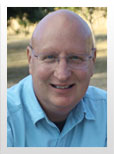|
To receive daily emails from Breaking Christian News to your inbox CLICK HERE
Once Impossible, Now a Reality: Paralyzed Man Walks Again After Doctors Implant "Smell Cells" in His Spine
(United Kingdom)—A man who was paralyzed from the chest down following a knife attack can now walk with help following a pioneering cell transplantation treatment developed by scientists at the University College of London (UCL) and applied by surgeons at Wroclaw University Hospital in Poland. Click here to watch a video of this patient walking. The patient, Darek Fidyka, was paralyzed after suffering stab wounds to the back in 2010, leaving an 8mm gap in his spinal cord. He described the ability to walk again using a frame as "an incredible feeling," and added: "When you can't feel almost half your body, you are helpless, but when it starts coming back it's as if you were born again." Dr. Pawel Tabakow, consultant neurosurgeon, Wroclaw University Hospital, who led the Polish research team said: "It's amazing to see how regeneration of the spinal cord, something that was thought impossible for many years, is becoming a reality." Professor Raisman first discovered OECs in 1985 and successfully showed that they could be used to treat spinal injuries in rats in 1997. He joined UCL in 2004 and has spent the past decade developing OEC spinal repair techniques for patients. Now, after decades of hard work, his research has helped a paralyzed man to walk again. Professor Raisman said: "It is immensely gratifying to see that years of research have now led to the development of a safe technique for transplanting cells into the spinal cord. I believe we stand on the threshold of a historic advance and that the continuation of our work will be of major benefit to mankind. I believe we have now opened the door to a treatment of spinal cord injury that will get patients out of wheel chairs. Our goal now is to develop this first procedure to a point where it can be rolled out as a worldwide general approach." Professor Michael Arthur, President & Provost of UCL, said: "This is an outstanding example of the true power of translational medicine, where great science in the form of successful cell transplantation is brought direct to real clinical need. The results achieved for this patient are truly inspiring, although further work is needed to determine whether the technique can be applied to other patients. The fact that this has occurred through international collaboration between scientists and clinicians is indicative of the way in which translational medicine is now a global endeavor." Before the study, Darek had been in various rehabilitation programs for 13 months after injury with no sign of improvement. As these programs were incomplete, he was also subjected to an additional 8 month rehabilitation program before the experimental treatment to check if he would recover without surgery, so-called 'spontaneous recovery'. The researchers say that the chances of a spontaneous recovery after this time are less than 1%. For the experimental treatment, Darek first underwent brain surgery to remove one of his olfactory bulbs, the main source of OECs. These help us to distinguish smells, but in this case Darek did not lose his sense of smell. In fact, he initially had no sense of smell due to chronic allergic sinusitis and nasal polyps, but these were cleared by sinus surgery and his sense of smell recovered. Following removal of the left olfactory bulb, Darek unexpectedly recovered some sense of smell in the left nostril. The exact reasons for this are unclear. It is possible that the right olfactory bulb was able to interpret smells from the left nostril, but the researchers were unable to confirm this.
Three months after the surgery, Darek's left thigh muscle began to grow and after six months he was starting to walk within the rehabilitation center with the help of a physiotherapist and leg braces. Now, two years on, he is able to walk using a frame although it is tiring. His bladder sensation and sexual function have also improved. He said: "I think it's realistic that one day I will become independent. What I have learned is that you must never give up but keep fighting, because some door will open in life." Sir Richard Sykes, chair of the UK Stem Cell Foundation, said: "We are proud to be the major funders of this work. Our aim is to see potential treatments of this type get into the clinic faster. The first patient is an inspirational and important step, which brings years of laboratory research towards the clinical test bed. To fully develop future treatments that benefit the 3 million paralyzed globally will need continued investment for wide scale clinical trials." Professor Michael Hanna, Director of the UCL Institute of Neurology, said: "Spinal and nerve injury represent a major cause of disability for many patients and effective treatment strategies are lacking. The generation of olfactory ensheathing cells for use in promoting nerve repair after spinal cord and nerve injury has been a major experimental research program by the team at the UCL Institute of Neurology over the past 10 years. I am delighted to see these very encouraging results in this first patient which represents an important and exciting milestone in this research program."
To receive daily emails from Breaking Christian News to your inbox CLICK HERE
Other Recent Articles from Breaking Christian News California Town Tears Down Beloved Hillside Cross Danielle Smith Again Defends Alberta's Coming Ban on Transgender Mutilation of Children US Supreme Court Says Idaho Can Enforce Ban on Child 'Sex Changes' as Lawsuit Continues How Bidenomics Shattered the American Dream of Homeownership Bill Aims to Stop Illegal Aliens from Squatting in US Homes Soros-Linked NGO Distributes Flyers in Mexico Telling Illegal Immigrants to 'Vote For Biden': Report Long-Awaited Articles of Impeachment against DHS Secretary Mayorkas Finally Arrive in Senate Justices Gorsuch and Alito Highlight Biden Admin's Glaring Double Standard during J6 Hearing NPR Suspends Editor Who Blew Whistle on Left-Wing Takeover of Newsroom 50,000 Join Polish March for Life in the Midst of Government Push to Overturn Abortion Ban Hamas Remains Obstacle to Gaza Ceasefire, Israel Has Moved in a 'Significant Way,' US Says Wow. Joe Biden Approved Iran's Assault on Israel 'Within Certain Limits' Maine Governor Allows National Popular Vote Legislation to Become Law Election Integrity: Trump, Mike Johnson Back Bill Assuring Only US Citizens Vote in Elections Fox News Host Lawrence Jones Delivers Powerful Gospel Message: I'm 'Proud to Be a Believer' California Mom Wants Child Castrated Without Father's Consent |
All articles on this site and emails from BCN are copyrighted property of Breaking Christian News. Permission is given to link to, or share a BCN story if proper attribution is given to both the original writer and summarizer of the story. Breaking Christian News 2005-2019. All Rights Reserved.
Breaking Christian News is a division of Elijah List Publications, Inc. All Rights Reserved
Disclaimer: Articles and links, as well as the source articles linked to; do not necessarily reflect the opinion of Breaking Christian News.
| Home | Store | Subscribe | Facebook | Article Archive |



 "I believe we stand on the threshold of a historic advance and that the continuation of our work will be of major benefit to mankind. I believe we have now opened the door to a treatment of spinal cord injury that will get patients out of wheel chairs. Our goal now is to develop this first procedure to a point where it can be rolled out as a worldwide general approach." -Professor Geoff Raisman
"I believe we stand on the threshold of a historic advance and that the continuation of our work will be of major benefit to mankind. I believe we have now opened the door to a treatment of spinal cord injury that will get patients out of wheel chairs. Our goal now is to develop this first procedure to a point where it can be rolled out as a worldwide general approach." -Professor Geoff Raisman Once the olfactory bulb had been removed, it was placed in a cell culture for two weeks to produce OECs. These were then injected into the spinal cord above and below the injury, and four strips of nerve tissue were taken from the ankle and patched across the 8mm gap. These formed 'bridges' for the spinal nerve fibers to grow across with the aid of OECs.
Once the olfactory bulb had been removed, it was placed in a cell culture for two weeks to produce OECs. These were then injected into the spinal cord above and below the injury, and four strips of nerve tissue were taken from the ankle and patched across the 8mm gap. These formed 'bridges' for the spinal nerve fibers to grow across with the aid of OECs.








